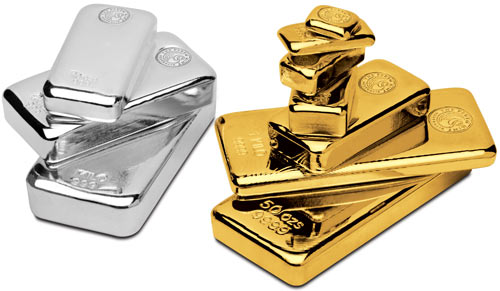By Lauren Rublin, via Barrons.com
Felix Zulauf was a member of the Barron’s Roundtable for about 30 years, until relinquishing his seat at our annual investment gathering in 2017. While his predictions were more right than wrong, it was the breadth of his knowledge and the depth of his analysis of global markets that won him devoted fans among his Roundtable peers, the crew at Barron’s, and beyond. Simply put, Felix, president of Zulauf Asset Management in Baar, Switzerland, always knew—and still knows—better than most how to connect the dots among central bankers’ actions, fiscal policies, currency gyrations, geopolitics, and the price of assets, hard and soft.

Barron’s: Felix, how have you been keeping busy since you left the Roundtable?
Felix Zulauf: I’m still running money, but it’s my own money, and I’m still a consultant to investors and institutions. I’m in the market almost every day. I like analyzing the world; the tectonic shifts occurring make it too fascinating to quit.
Which shifts do you mean?
For one, we have left the world of free markets and entered the world of managed economies. This is a major change in my lifetime. Central banks took over the running of economic policy after the financial crisis and run the show to this day. Also, the globalization movie is starting to run backward. The past 30 years saw the biggest globalization process ever, with the integration of China into the world economy. With today’s trade conflict, that is changing. The alternative is more regionalization of the economy, which could create problems for multinational companies.
Is a reversal of globalization inevitable?
The Northeast Asia economic model isn’t compatible with the Western model. In the West, corporations are run for profit. In Northeast Asia, exports have been used to increase employment, income, and market share. In China, average export prices have been unchanged in U.S. dollar terms for the past 15 years, whereas the average wage has gone up six times. A company with such statistics goes bankrupt, but China has escaped that outcome through the use of debt.
The World Trade Organization should have sanctioned China for applying unfair trade practices, but didn’t. Presidents Clinton, Bush, and Obama, and Europeans, were asleep. President Trump has taken up the issue, as he was elected to do. Middle-class incomes in the U.S. and many European countries have been unchanged or down for the past 30 years in purchasing-power terms, while middle-class incomes in China and its satellite economies have risen tremendously. I expect the trade conflict to continue, with all Chinese exports to the U.S. subject to 25% tariffs within 12 months or so. The Chinese will lose a few trade battles, but eventually win the war.
How so?
China will build up its strategic partnerships around Asia, keep expanding in Africa, and try to convince Europe to join its trading bloc. If the U.S. continues to take an aggressive stance, it runs the risk of becoming isolated. I’m not talking about the next 12 months, but the next six or seven years. A trade war might protect U.S. industries for a while, but protectionism weakens industries and economies.
At present, the world economy is desynchronized. The U.S. economy is on steroids due to tax cuts and government spending and growing above trend. China is in a pronounced slowdown that could continue until the middle of next year, at least. The Chinese agenda is to have a strong economy in 2021, the 100th anniversary of the founding of the Communist Party of China, and 2022, the year of the next National Congress. That is why China started to address major problems, such as pollution and financial excesses, in 2017. Cleaning things up led to a slowdown that could intensify in coming months as U.S. tariffs increase.
What will happen thereafter?
China will launch another fiscal-stimulus program, supported by monetary stimulus. When it does, the currency will fall 15% or 20%. The Chinese will let the currency go because they know they can’t please President Trump on trade. They aren’t prepared to do what he’s asking for. We’ll also see fiscal stimulus applied in emerging markets, which are largely dependent on China, and in Europe and maybe the U.S., where President Trump will launch a spending program to boost the economy ahead of the 2020 election.
Global fiscal-stimulus initiatives are poison for bond markets. Bond yields are rising around the world. After major new fiscal-stimulus programs are announced, perhaps from mid-2019 onward, yields will rise quickly, resulting in a decisive bear market in bonds.
What is behind the sudden surge in Treasury yields?
Several factors are pushing yields higher: The U.S. economy is growing above trend, capacity utilization is high, and the intensifying trade conflict with China suggests disruption in some supply chains, which leads to higher prices. The Federal Reserve is selling $50 billion of Treasuries per month, and the U.S. Treasury must issue $1.3 trillion of paper over the next 12 months. All these factors are pushing yields up.
How do Europe’s prospects look to you these days?
Introducing the euro led to forced centralization of the political organization, as imbalances created by the monetary union must be rebalanced through a centralized system. As nations have different needs, the people are revolting; established parties are in decisive decline, and anti-establishment organizations are rising. The risk of a hard Brexit is high. Italy doesn’t listen to Brussels any longer. It kept the budget deficit around 1% of gross domestic product in recent years, as instructed, which meant the country, with a dysfunctional banking system, had no growth and high youth unemployment. The March election brought anti-establishment parties to power that proposed a budget with a 2.4% deficit target. Eventually it will be closer to 4%. The Italian banking system holds €350 billion of government bonds. If 10-year government-bond yields hit 4%, banks’ equity capital will just about equal their nonperforming loans.
By the middle of next year, you’ll see more fiscal stimulation in Germany, Italy, France, and possibly Spain. Governments will not care about the EU’s directives. The EU will have to change, giving more sovereignty to individual nations. If Brussels remains dogmatic, the EU eventually will break apart.
The European Central Bank will quit quantitative easing by the end of this year. The economy has been doing well, the inflation rate has risen, and yet the ECB has continued with aggressive monetary easing, primarily financing the weak governments. This is nonsense. They are the worst-run central bank in the world. I expect the euro to weaken further, possibly to $1.06 from a current $1.15.
So far, the stock market has taken trade tensions and other challenges in stride. Where to from here for U.S. stocks?
The Federal Reserve is draining liquidity from the financial system [by not buying new bonds to replace maturing paper]. It will remove another $600 billion from the market in the next year. The Treasury will issue $1.3 trillion of Treasury paper to finance the budget deficit. All of this means a lot of liquidity is being withdrawn from the market, which is bearish for financial assets. I expect U.S. stocks to slide into the middle of next year, falling maybe 25% to 30% from the top, taking nearly all other markets down with them.
When the declines are big enough, the central planners will come in. Central banks will ease monetary policy, buying assets if necessary. You won’t earn a lot owning equities over the next 10 years, especially if you’re a passive investor in index funds. It will be a much better time for traders and active investors who pick stocks and sectors and do exactly what hasn’t worked for the past 10 years.
In that case, what are your investment recommendations?
I’d be long the dollar, particularly against emerging-market currencies. The Brazilian real could be the next currency that gets clobbered, particularly if a leftist candidate wins the presidential election. I would also short the South African rand, as policies are going in the wrong direction.
I’m bullish on oil because the market is tight. Spare capacity has been declining. Demand has been above supply on a global basis for almost two years. Sanctions on Iran will curtail buying from there, and production in Venezuela and Iraq is declining steadily. One morning, we’ll wake up and crude will be at $95 or $100 a barrel. That will be bullish for U.S. shale-oil producers, oil-service companies, and some exploration and production companies. I would buy the SPDR S&P Oil & Gas Exploration & Productionexchange-traded fund [ticker: XOP]. I would also go long crude, via the spot futures contract. Rising oil prices, a rising dollar, and rising bond yields historically have been a bad combo for equity markets.
Would you short emerging markets at current levels?
I would wait until they bounce a bit more, then short the iShares MSCI Emerging Markets ETF [EEM]. The problems in emerging markets will intensify. Japan, as I mentioned, will be an outperformer. Corporate Japan has worked on improving its balance sheet for 25 years. Japanese companies are highly profitable, and their stocks are cheap. The market is trading for 14 times earnings. The yen is slipping against other currencies, which is a plus. Even if Japan declines with other markets, it will decline less. I recommend buying the DXJ [ WisdomTree Japan Hedged Equit y ETF] and hedging by selling short the S&P 500 against it.
You haven’t mentioned gold, a longtime favorite.
Monetary tightening isn’t bullish for gold. The price might bounce for a few weeks, but I don’t see it moving up in a big way. It is way too early for the bull market in gold. We need a sharp decline in equities (which would lead to further easing of monetary policy) or a weakening of the U.S. economy, which would stop the Fed from tightening further.
What are your thoughts about cryptocurrency?
This area is called Crypto Valley. It is a major center of cryptocurrency and blockchain activity. I’m not a fan of cryptocurrencies because I don’t trust the promises of limited supply, but blockchain technology is here to stay. There will be explosive growth in blockchain applications, which will remove a cost layer in the world economy by removing the need for intermediaries. This is a tremendous plus for productivity.
Full story here Are you the author? Previous post See more for Next postTags: newsletter






















